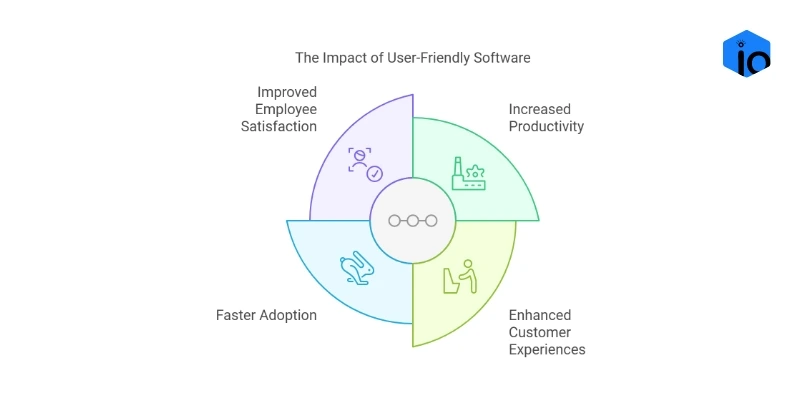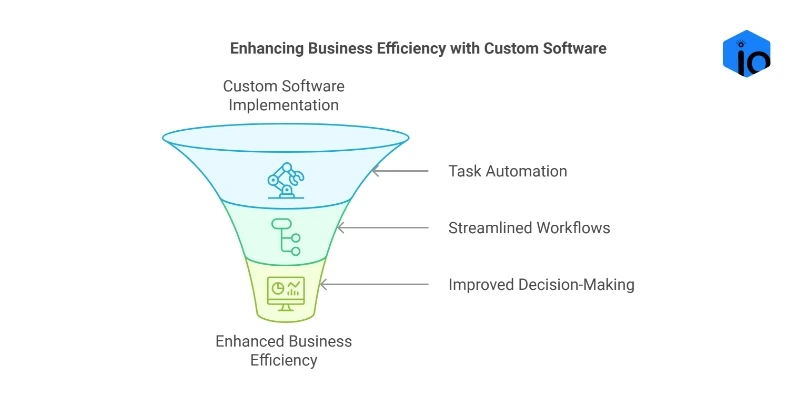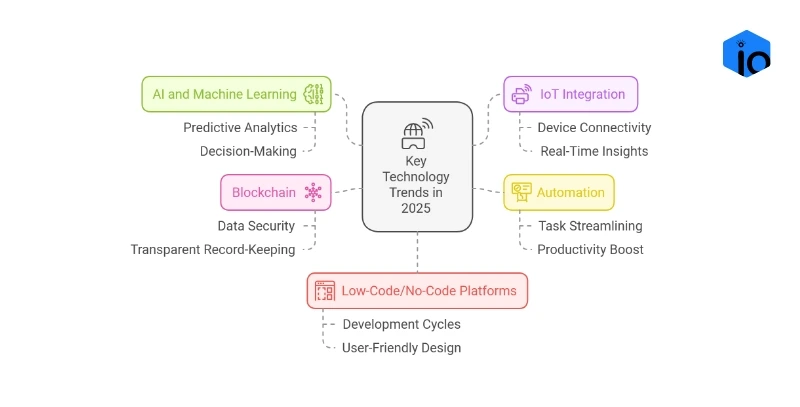Introduction
Imagine wearing a suit tailored to your exact measurements—perfectly fitted, uniquely designed, and built for comfort. Now, think of custom software in the same way: a solution crafted precisely to your business’s needs, streamlining processes and delivering unparalleled performance.
It is transforming the way businesses operate, helping them adapt to an increasingly digital and competitive world. Unlike one-size-fits-all solutions, custom software is designed specifically to meet the unique needs of a business. It integrates seamlessly with existing systems, improves user experiences, and aligns with long-term goals.
As we approach 2025, business need to be ready to face new challenges, including maintaining scalability, ensuring regulatory compliance, and navigating cybersecurity risks. User-friendly custom software has become a critical solution for addressing these challenges while enabling businesses to grow.
This guide explores how user-friendly custom software can revolutionize business processes and position organizations for success in the future.
Why User-Friendly Custom Software is Essential for Growth in 2025 ?

User-friendly software prioritizes ease of use, intuitive interfaces, and seamless navigation. It ensures that users, whether employees or customers, can interact with the platform efficiently without extensive training or confusion.
Its intuitive design fosters productivity, improves user satisfaction, and drives adoption rates, making it a critical factor for growth.
Key Benefits of User-Friendly Software:
-
Increased Productivity: Employees can focus on high-value tasks instead of navigating complex interfaces.
-
Enhanced Customer Experiences: Simple and intuitive software improves engagement and retention.
-
Faster Adoption: Teams embrace systems that are easy to learn and use, reducing training time.
-
Improved Employee Satisfaction: A well-designed interface reduces frustration, boosting morale and retention.
As businesses embrace digital transformation, user-centered design is becoming a top priority for custom software solutions. By considering user needs at every stage of development, companies can create systems that enhance workflows and support growth.
Overcoming Challenges with Off-the-Shelf Software
Off-the-shelf software often promises quick implementation and low costs but falls short when addressing specific business needs.
Limitations of Off-the-Shelf Software:
-
Rigid Features: Generic functionalities fail to adapt to unique requirements.
-
Integration Issues: These solutions often struggle to work seamlessly with existing systems.
-
Scalability Constraints: Businesses outgrow these tools as they expand operations.
Such challenges highlight the importance of tailored solutions. Tailored software solutions for businesses address these limitations by creating scalable, adaptable, and integrated systems that evolve with the company.
How Custom Software Boosts Business Efficiency ?

Efficiency is the backbone of business success, and custom software is a powerful tool for achieving it. Tailored to specific workflows, whether managing inventory, scheduling staff, or processing payments, it ensures smooth, efficient operations.
Key Benefits of Custom Software for Efficiency:
-
Task Automation: Reduces manual effort, freeing employees for strategic work.
-
Streamlined Workflows: Aligns processes to minimize bottlenecks and improve coordination.
-
Improved Decision-Making: Custom dashboards provide real-time insights for data-driven strategies.
Efficient systems lead to cost savings, better time management, and higher productivity. As businesses aim to remain competitive, adopting solutions that streamline operations will be critical.
Ensuring Compliance and Security with Custom Solutions
In an age of rising cyber threats and stringent regulations, businesses cannot afford to compromise on compliance or security. Custom software allows businesses to meet stringent regulatory requirements while protecting sensitive data.
Why Custom Software is Ideal for Compliance:
-
Tailored Features: Designed to meet specific industry standards like HIPAA or GDPR.
-
Integrated Auditing Tools: Simplifies reporting and ensures accountability.
Enhanced Security Features:
-
Data Encryption: Protects sensitive information from breaches.
-
Access Controls: Restricts data access to authorized users only.
Custom software prioritizes these aspects, providing businesses with peace of mind while minimizing risks.
Industry-Specific Applications of Custom Software
Custom software is versatile, addressing challenges across diverse industries. For example:
Healthcare
-
Patient Management: Simplify scheduling, billing, and medical record handling.
-
Telemedicine: Enable seamless remote consultations and monitoring.
For businesses in healthcare, custom software boosts efficiency in healthcare while improving patient outcomes.
Manufacturing
-
Predictive Maintenance: Prevent equipment failures and reduce downtime.
-
Inventory Optimization: Track stock levels in real-time to meet demand efficiently.
Logistics
-
Route Optimization: AI-powered insights enhance delivery schedules and cut fuel costs.
-
Real-Time Tracking: Improve transparency and customer satisfaction with live updates.
These industry-specific applications highlight how custom software development solutions cater to diverse needs, ensuring scalability and efficiency.
The Future of Custom Software Development: Trends to Watch

Emerging trends in custom software development will shape the way businesses approach digital transformation.
Key Trends in 2025
-
AI and Machine Learning: Advanced analytics for predictive decision-making.
-
IoT Integration: Connecting devices for smarter workflows and real-time insights.
-
Automation: Streamlining repetitive tasks to boost productivity.
-
Blockchain: Enhanced data security and transparent record-keeping.
-
Low-Code/No-Code Platforms: Faster development cycles with user-friendly design tools.
Looking Ahead
The future of custom software development solutions lies in scalability, adaptability, and innovation. Businesses investing in these trends today will remain competitive tomorrow.
Explore future trends in software development to stay ahead.
Key Considerations When Investing in Custom Software
Investing in custom software requires careful planning to maximize benefits and ensure long-term success.
ROI and Scalability
When evaluating custom software, consider its potential to grow with your business. A scalable solution offers long-term savings by eliminating frequent upgrades.
Choosing the Right Development Partner
Partnering with experienced developers ensures your software aligns with your goals. Look for:
-
Strong portfolios.
-
Transparent processes.
-
Post-launch support.
Partnering with the right developer can make all the difference, ensuring the solution is not only effective but also future-proof.
Conclusion
Custom software development solutions are paving the way for businesses to thrive in 2025 and beyond. By focusing on user-friendly designs, scalability, and security, these solutions address modern challenges while positioning businesses for long-term success.
The future belongs to companies that invest in innovative, tailored software solutions. Are you ready to take the next step? Contact iotasol today to explore how our custom software development services can transform your operations and ensure long-term success.
FAQs
Q1: What are the benefits of custom software for small businesses?
Custom software offers flexibility, scalability, and solutions tailored to specific needs, helping small businesses grow efficiently.
Q2: How does custom software differ from off-the-shelf solutions?
Custom software is designed for your business, ensuring better integration, usability, and scalability compared to generic tools.
Q3: Is custom software worth the investment?
Yes. While the initial cost may be higher, the long-term ROI through improved efficiency and reduced operational costs justifies the investment.
Q4: Can custom software improve cybersecurity?
Absolutely. Tailored features like encryption and secure access controls significantly reduce security risks.
Q5: How long does it take to develop custom software?
Depending on complexity, development typically takes 4–12 months.